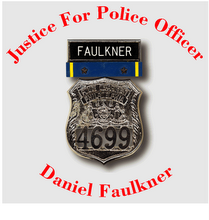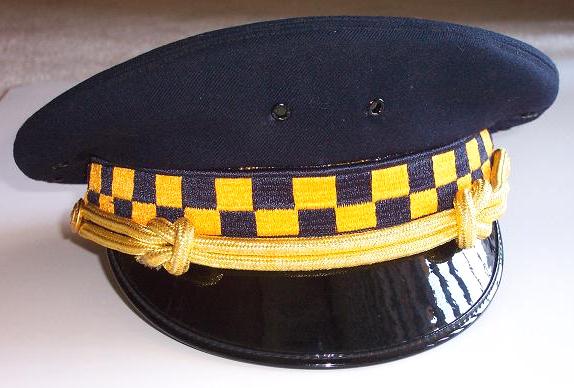There's a new foot pursuit policy in the Austin, Texas Police Department. From now on, officers in that agency will have to ask themselves a long list of questions before chasing criminal suspects by foot. According to a report in the Austin American Statesman by Tony Plohetski, Austin police officers must evaluate the immediate danger, consider whether a suspect is known and can be arrested later, and ask themselves what would be gained from pursuing the suspect before beginning foot chasesMore from American Police Beat
Winchester Releases RANGER ONE LE Ammo
6 years ago














15 comments:
This sounds like a CPD,initiative
Finally. Almost the total acquiesence to the scum.
Next:
If he's a known offender, apply for a warrant from your blackberry. Eemail him the warrant. He can enter his plea on line, and if guilty, the sentencing should be done electronically.
If there is a period of incarceration, he can promise to stay under house arrest, verified by a gps beeper from the court.
Justice 2008.
Be careful boys and girls. We don't have a lot of friends out there.
what happened that this knee jerk reaction occurred? Did some officer chase a suspect and the suspect run into a car and get killed?
Ya know...a couple of years ago, as a joke, someone printed up a "self arrest" form and we all had a good laugh. I wouldn't be surprised if this is implemented in the future as well. God help us, retirement can't come soon enough.
Couldn't we just say we were out for a midnight jog?
Policing is dead.
I don't chase anyone anymore anyway. This policy would be par for the course for the JPUD Wies administration.
Merry Christmas, SCS. I hope it's a very happy, safe and blessed one for you and your family.
Be safe out there.
you can always say you are just following him
Policing, as anyone here with 20+ years on the job knows it, is dead in the water. Here are the steps required for a successful 20+ career for all you hair gel newfangled police:
1) Attend roll call promptly. Be sure you are in proper field uniform, and have all required
equipment to perform your duties
in the field as soon as you are dismissed from roll call. Make sure you have obtained and read the current available edition of the DIBS as it pertains to your area of patrol.
2) immediately obtain portable radio after roll call, if none is available to you before roll call. After obtaining your portable radio and attending roll call, go directly to you squad, to determine if you have one assigned that actually works.
3) Examine squad thoroughly for signs of damage, fluid levels, potential contraband left inside vehicle. If any is located, immediately notify your assigned supervisor. Take whatever action he/she requires you to do (depending on what is located/recovered, your squad may become an actual "crime scene;" see "crime scene processing" G.O. for further details (you may be asked to submit a dna sample).
4) If assigned vehicle is in good working order,turn portable radio volume level up so that you can hear it over volumne of MP3/portable dvd player, strap on side blinders so that you are not distracted from potential "on view" incidents or hand wavers, and go directly to your radio dispatched calls. You may check the PDT to determine if it is operable at your own leisure, as it is likely to inoperable most of the time. This does not mean you must necessarily remove it from your vehicle for repair, as it makes an excellent portable desk from which you may write reports, place your dvd or MP3 player, play cards with your partner, or place assorted newspapers and/or magazine reading materials.
NOTE: you will utilize reading materials (papers, magazines) ONLY when you are parked outside of the view of the public.
5) You will deviate from these guidelines ONLY in the event of hearing a call for assistance from someone identified as a law enforcement officer. At all other times, the speed limit and all traffic signals will be obeyed.
6) Make sure you take your 30 minute lunch at your posted lunch times; if you're overweight, you may choose to skip your lunch time, if you so desire. Do not expect to be paid for missing your daily posted lunch period.
7) GO DIRECTLY TO ALL ASSIGNMENTS.
If you should change location after arriving on the scene, the dispatcher should be notified immediately of any changes in location, or what your initial investigation of the assignment reveals. Should you make an arrest, inform OEMC immediately of your status, and your new location.
8) Once inside the station/processing area, sign your prisoner in on the log immediately.
Desk personnel should know the name of your prisoner, the location of arrest, and the expected charge. So should your assigned supervisor.
9) Always call for an assisting unit, should you need it. Any injuries that occur while on duty should be immediately documented on the appropriate Dept. formset report, along with any and all suporting documents related to the injury sustained.
10) At the end of your tour of duty, make a thorough check of your assigned vehicle. Ensure that any and all refuse has been removed from same. Check back seat
to ensure that no contraband has been concealed under same. Check for all equipment you brought into your assigned squad; anything left behind should be considered "giveaway" items, as it is likely you will never see those items again.
Have a great tour of duty, and welcome to 21st Century policing!
Merry Christmas to you and your family, Sarge. Please be safe out there.
Court Rules Cops Can Carry Guns – Nationwide!
SPRINGFIELD, Va., Nov 18, 2008
Good Guys Can Fight Back - Criminals Beware!
A ruling on a case from South Dakota -- where off-duty law enforcement officers were
criminally charged for carrying guns despite the authority to do so under the federal 'Law
Enforcement Officer's Safety Act of 2004'(LEOSA) -- has confirmed that all qualified off-duty
and retired law enforcement are allowed, by federal law, to carry a concealed gun for
personal self-defense irrespective of state law. The federal law supersedes the crazy,
confusing and often conflicted state and local laws that limit legitimate self-defense.
LEAA's Executive Director, Jim Fotis said, "When LEAA co-authored the original draft of
what became affectionately known as 'National Cop Carry' back in the early 1990's, I knew it
would save cops' lives and give those who choose to resist violent criminals a fighting
chance. In 2004 I shook President Bush's hand after he signed our bill into law and rejoiced
that our fight -- for more than a decade -- was finally over!"
The local prosecutor's apparent effort to challenge the federal law, and send a message to 0A
all in law enforcement not to carry a gun for self-defense in South Dakota, was soundly
rejected! Thankfully, after careful review, the gun charges against the officers were
dismissed. "The Judge's crystal clear and unambiguous legal opinion should be required
reading for every prosecutor in the nation so that no other law enforcement professionals,
active or retired, have to endure what those officers and agents have endured in South
Dakota," declared Carl Rowan, LEAA's Vice President.
Robert Van Norman and Kenneth Orrock, Attorneys for the officers, said "We are pleased
with the court's decision, as it reaffirms the intent of the Law Enforcement Officers Safety
Act and in effect will protect law enforcement officers and our communities. The law
enforcement community should find comfort that LEOSA has been properly applied in this
case."
A copy of the Judge's memorandum decision -- and extensive background information on
LEOSA -- is available at the LEAA website:
http://www.leaa.org
Over a week without a new post. Shocking you average 5 to 15 comments per post. Why does SCC have you listed on his site again? I didn't think you would know.
Why does SCC have you listed on his site again? I didn't think you would know.
Mon Dec 29, 01:47:00 AM
SCC never took me off. If you really need to know then ask them.
And why do you give two shits as to how often I post or don't.
"I love you long time G.I."
Sorry--seeing her picture gave me a flashback.
Post a Comment